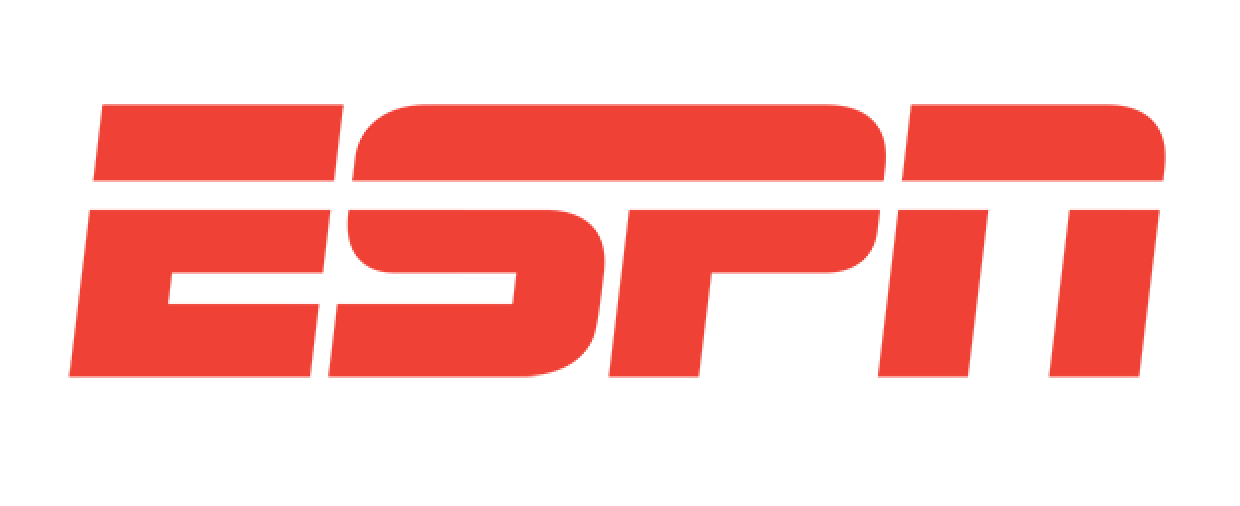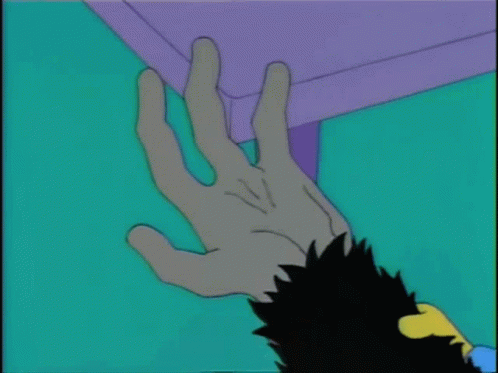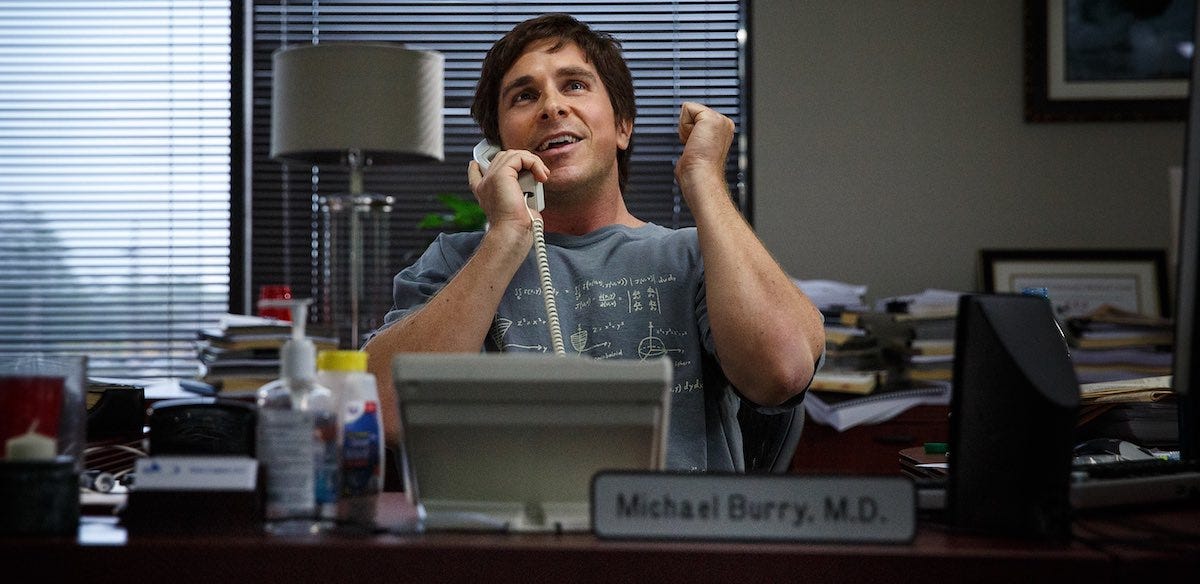Charter Vs. ESPN: A Fight for the Future of TV
Plus: a stock market classic assigned!
The most important story in entertainment right now, aside from the ongoing strikes, is the standoff between Charter/Spectrum and ESPN. Anyone who watches sports and lives in an area serviced by Spectrum—which I do, and do—will have noticed that ESPN has gone dark on Spectrum. Right as the U.S. Open is on. More importantly: Right as football season is beginning.
Conflicts between cable companies and cable channels are not new: I remember AMC going to war with DirecTV in 2014 and then independent cable companies in 2015 after those cable providers pushed back against the network known for meth dealers, Madison Avenue ad men, and zombie apocalypses when it jacked up affiliate fees on the backs of those critical and commercial successes.
AMC represented both the promise and the peril of the cable bundle. The promise was that networks like AMC (or FX or USA or whatever), being part of the bundle, had a more or less steady flow of passive revenue in the form of affiliate fees. That revenue could be used to pay for gambles that led to the explosion in original programming we often refer to as the new golden age of television, HBO-light programming like The Shield and Nip/Tuck and Louie on FX and Breaking Bad and Mad Men and The Walking Dead on AMC.
Great success gave these individual channels leverage, and with that leverage they pushed for higher affiliate fees. To understand AMC’s fights with DirecTV and the cable companies, all you have to do is read this story in the Atlantic. Between 2007 and 2013, AMC’s affiliate fees grew 50 percent, from 22 cents per customer to 33 cents. These are literal pennies, of course, but those pennies add up: hypothetically, if you multiplied those 11 pennies by 100 million households and 12 months a year, that’s an additional $132 million a year. Which gets plowed back into production, which creates more hits, which makes the network even more valuable to the cable bundle, which allows you to push for higher fees: a virtuous cycle for AMC.
But there’s a problem. More “indispensable” channels demanding more money means higher bills for customers, which hastens cord-cutting, which causes cable channels to push for even higher affiliate fees to make up the lost ground, which causes higher bills for the fewer remaining customers, more cord-cutting, and so forth. What is a virtuous cycle for the cable channels quickly morphs into a vicious cycle for the cable companies. And what’s bad for the cable companies is, eventually, going to be bad for the cable channels.
This is the predicament Charter and ESPN find themselves in now. Over at Stratechery, Ben Thompson dives into the history and explains how we got where we are. Basically, it’s the same thing you see with AMC. ESPN was one of the first cable channels, and it quickly became indispensable. That indispensability led it to sign more and richer rights deals with sports leagues, which made it more expensive, which increased the overall cost of cable, which led to cord-cutting, etc. But now Charter’s at the point in the cycle where it simply doesn’t make sense to keep paying huge fees to Disney and ESPN without getting anything in return. They want the opportunity to bundle ad-supported Disney+ with the cable package, particularly since ESPN is leaning toward creating a full-fledged sports streamer in the not-too-distant future.
Once again: my most heretical opinion is that the bundle was secretly kind of great. And we seem to be approaching a real fork in the road. One path leads to a return of sorts to the bundle: cable companies offering access to the ad-supported tiers of D+, Max, Peacock, Paramount+, etc. for cheaper than all of those streaming channels individually. The other leads to the collapse of cable video entirely and a streaming-only future.
Let us hope the right path is chosen.
Links!
This week I reviewed Bottoms and No Hard Feelings and wondered about the state of the R-rated comedy.
Today’s Across the Movie Aisle is about the explosion of old-man action movies and the cultural/economic reasons for their prominence.
Speaking of Across the Movie Aisle: On Monday, we talked about the upcoming Taylor Swift concert and why she and AMC were smart to cut the studios out of distributing her Eras Tour concert movie. I also suggested that it wouldn’t necessarily make sense to review the movie since it’s a concert movie and we don’t really review concert movies in part because if you don’t care for the musician how can you enjoy the concert or a film about it, which prompted outrage in the comments. So you know what, loyal listeners? We’re going to review the Taylor Swift concert movie!
In unrelated news, one finger on a monkey’s paw curled somewhere.
Vulture’s Lane Brown has a pretty devastating piece about the ways in which Rotten Tomatoes’s expansion has not only diluted the usefulness of its fresh/rotten score by adding a ton of marginal fanboy-critics who inflate the fresh scores for big releases; that expansion has also encouraged efforts to game the system that seem to have included publicists paying critics for positive reviews. As a longtime critic (and one who has been on Rotten Tomatoes since 2008 or so) I was practically vibrating with rage while reading it. The lesson, as always, is that aggregators are pretty pointless and you’re better off just having one voice you trust to steer you right.
Assigned Viewing: The Big Short (Netflix)
I’ve seen the trailer for Dumb Money, the forthcoming stock market comedy about the meme-ification of GameStop stock, a few times and it looks pretty fun. Netflix, perhaps understanding the anticipation for this movie, reminded me via its homepage that The Big Short is on its service. Which means I might have to revisit that here in the next week or so, if only because it is remarkably fun to watch Christian Bale whale on a set of drums.






Two random thoughts.
1. No Hard Feelings was fantastic and really highlighted the differences between my Millennial generation and the Zoomers. J-Law's comedic chops are also fantastic and surprising, in a way similar to Channing Tatum. Both are excellent movie comedians that I never saw coming. Also... No Hard Feelings definitely satisfies Victorino's most important quadrant.
2. During my college days, I had many a night where I was one Bud Light away from full blackout. On occasion in those instances, I'd bum a smoke. Despite the heavy intoxication, cigarettes never tasted good. And I knew I looked trashy. All that said... Don Draper made smoking look cool as hell.
Thanks for the review on No Hard Feelings. I was kinda watching the trailer with vaguely “WTF did Lawrence sign up for here” feelings, and you provided some clarity. Can’t wait to see it